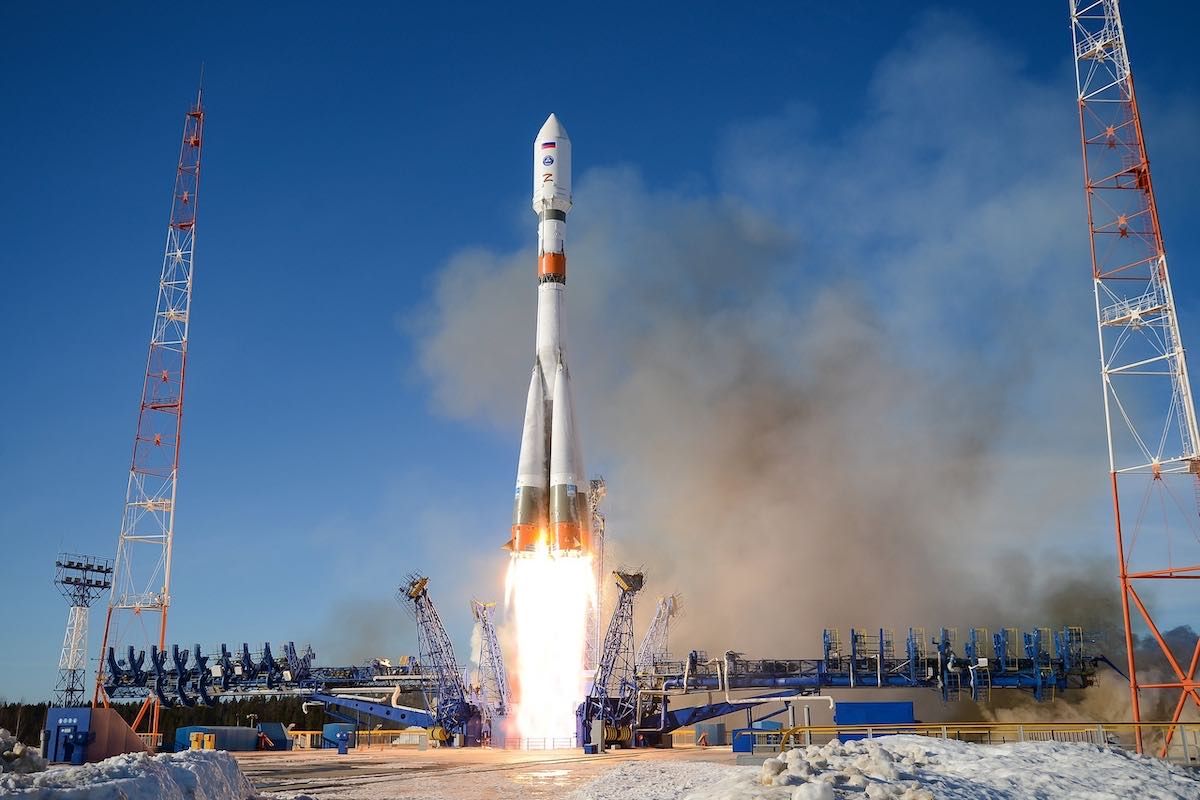Russia has experienced a staggering 90% decrease in satellite launch orders from Europe and other regions following its invasion of Ukraine in 2022, according to the latest data from a US astrophysicist.
This decline has come as a boon for India in advancing its space presence, potentially overshadowing the position held by Russia.
For decades, Moscow has stood shoulder-to-shoulder with the US as a dominant force in space exploration and satellite launches. The dynamics shifted when European countries, long reliant on Russia’s Soyuz spacecraft for their satellite deployment needs, began to distance themselves following the invasion of Ukraine.
This change in stance became pronounced as the data compiled by a US astrophysicist referenced in the latest report. The report revealed a stark contrast in satellite launch numbers over the years.
In 2021, Russia carried out 35 satellite launches for Britain and other countries. However, in the wake of geopolitical tensions, this number plummeted dramatically to a mere 2 launches in 2022 before modestly rebounding to three in the subsequent year.
Further, Moscow is grappling with financial difficulties, illustrated by the significant drop in Russia’s state space corporation, Roscosmos’ revenue from 32.3 billion rubles ($113.7 million) in 2018 to a mere 10.5 billion rubles in 2021.
The space agency seems to be sliding deeper into a financial quagmire, worsened by a dwindling demand for its satellite launch services – an essential source of foreign currency earnings – stemming from the repercussions of the Ukraine invasion.
Last month, Yury Borisov, the CEO of Russia’s state space corporation Roscosmos, openly acknowledged, “Roscosmos lost a large portion of its export revenues. Out of all fixed contracts worth 230 billion [rubles], so-called unfriendly countries accounted for 180 billion, which is engine sales and launch services. Essentially, we lost 180 billion rubles in export revenues.”
Moreover, it is also reported that as Western sanctions continue to impact Russia, Roscosmos, the Russian space agency, intends to sell assets valued at over 11.4 billion rubles ($124 million).
In the current year, the Russian space agency plans to sell off its “non-core” assets, totaling over 150 items. These include boarding houses, former sanatoriums, land and property complexes, and recreation centers.

Russia’s Setback Becomes India’s Opportunity
As Russia grapples with significant losses in its space endeavors, other nations are poised to fill the void. Along with the USA, where SpaceX, the brainchild of billionaire Elon Musk, is bolstering America’s dominance in space, India is also stepping into a pivotal role in the global space industry.
India’s emergence as a key player is underscored by recent data indicating a remarkable surge in satellite launches for overseas clients. In 2023 alone, India launched 46 satellites for international customers, marking a threefold increase from the figures recorded in 2021.
One key advantage India holds is its geopolitical position. With Russia’s role as a competitor severely curtailed by the conflict in Ukraine, opportunities have arisen for Indian entities.
For instance, OneWeb, a British satellite startup, turned to India’s ISRO after Russia impounded 36 of its spacecraft in September 2022. Given geopolitical considerations, the US government would be more inclined to greenlight the launch of military-grade technology through India rather than China.
India’s momentum in the space sector gained traction in June 2020 when Indian Prime Minister Narendra Modi announced a concerted effort to open up the industry to various private enterprises, fostering a network of businesses driven by original research and indigenous talent.
The decision to open the sector for private players has sparked the emergence of 100 deep-tech start-ups. Additionally, the recent announcement of 100 percent Foreign Direct Investment in India’s space sector has further galvanized its growth trajectory.
With Russia entangled in the conflict in Ukraine, satellite launch services are anticipated to be the fastest-growing segment in the Indian space economy, followed closely by satellite manufacturing.
The Indian space economy is valued at approximately US $8.4 billion, holding a 2 percent share in the global space economy. Projections, however, suggest that by 2033, it could soar to US $44 billion, commanding 8 percent of the global share. By 2040, it is anticipated to evolve into a trillion-dollar industry.
On February 28, Prime Minister Narendra Modi laid the foundation for India’s second spaceport at Kulasekharapatnam, a town in the Thoothukudi district of Tamil Nadu.
The spaceport is envisioned to serve as a launch pad for smaller satellites and is expected to accommodate 24 launches annually.
Equipped with mobile launch facilities, it is poised to play a pivotal role in accommodating the growing launch frequency of both ISRO and the burgeoning private space industry in the coming years, as outlined by ISRO Chairman S Somanath.
- Contact the author at ashishmichel(at)gmail.com
- Follow EurAsian Times on Google News